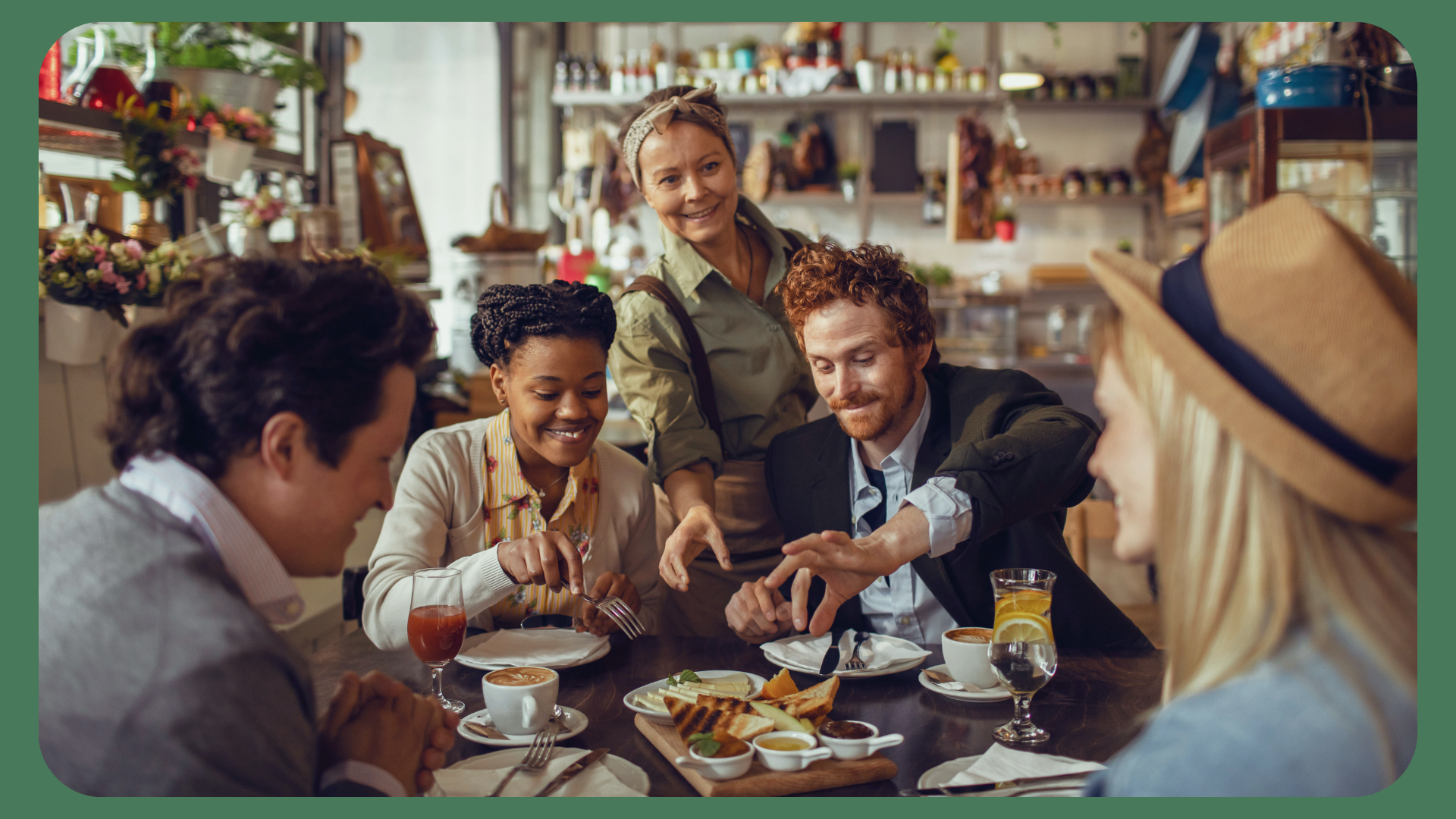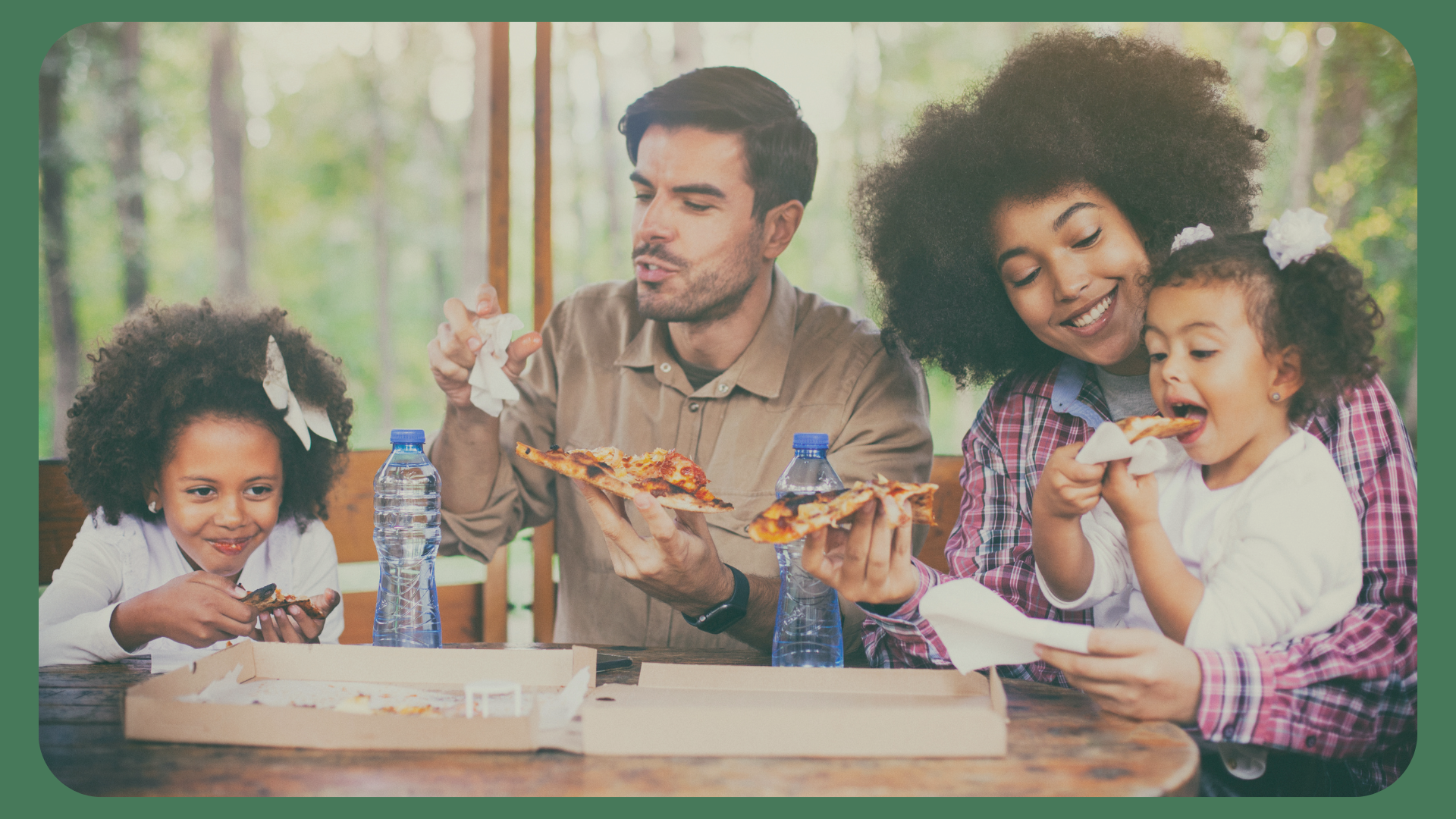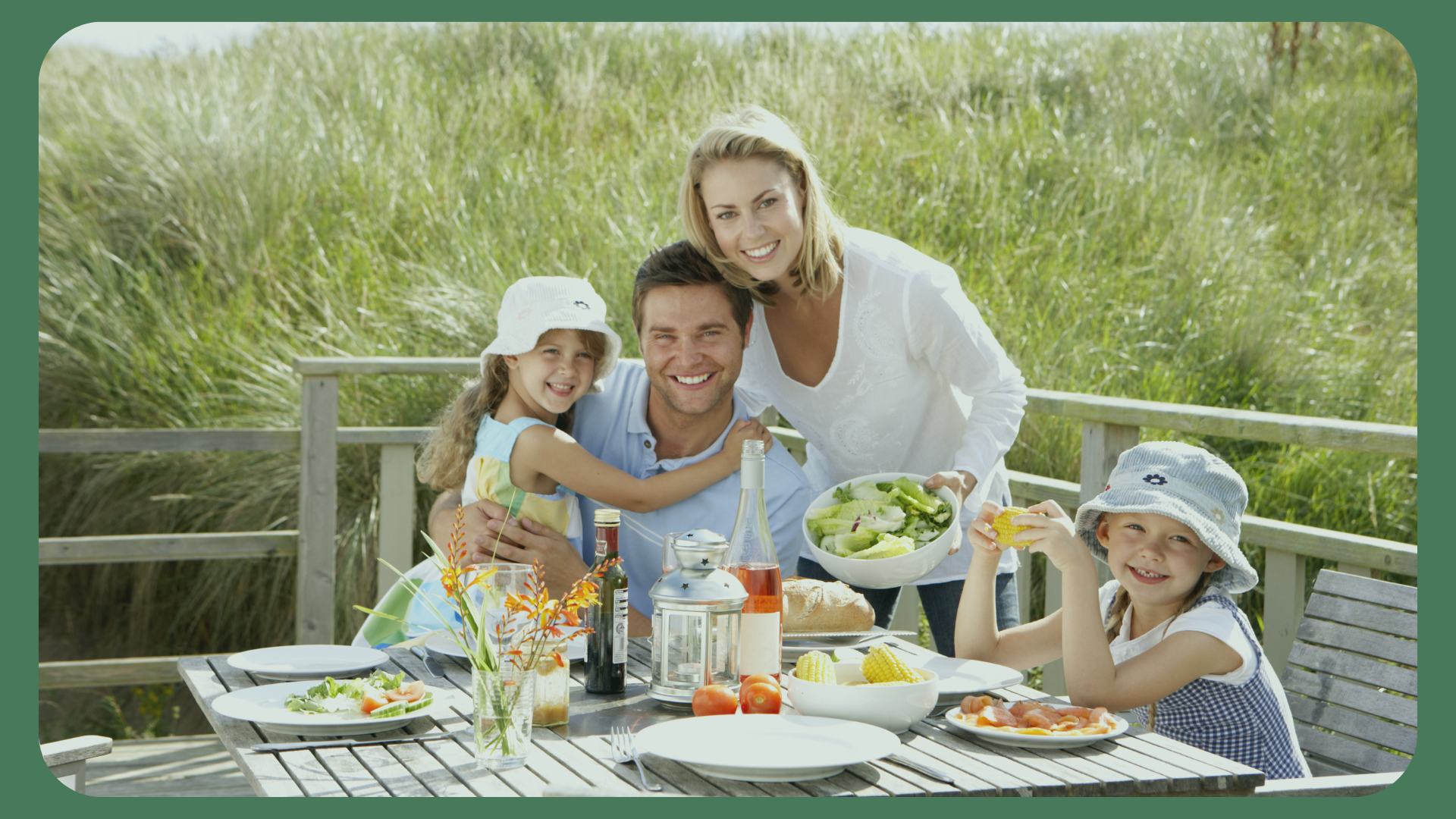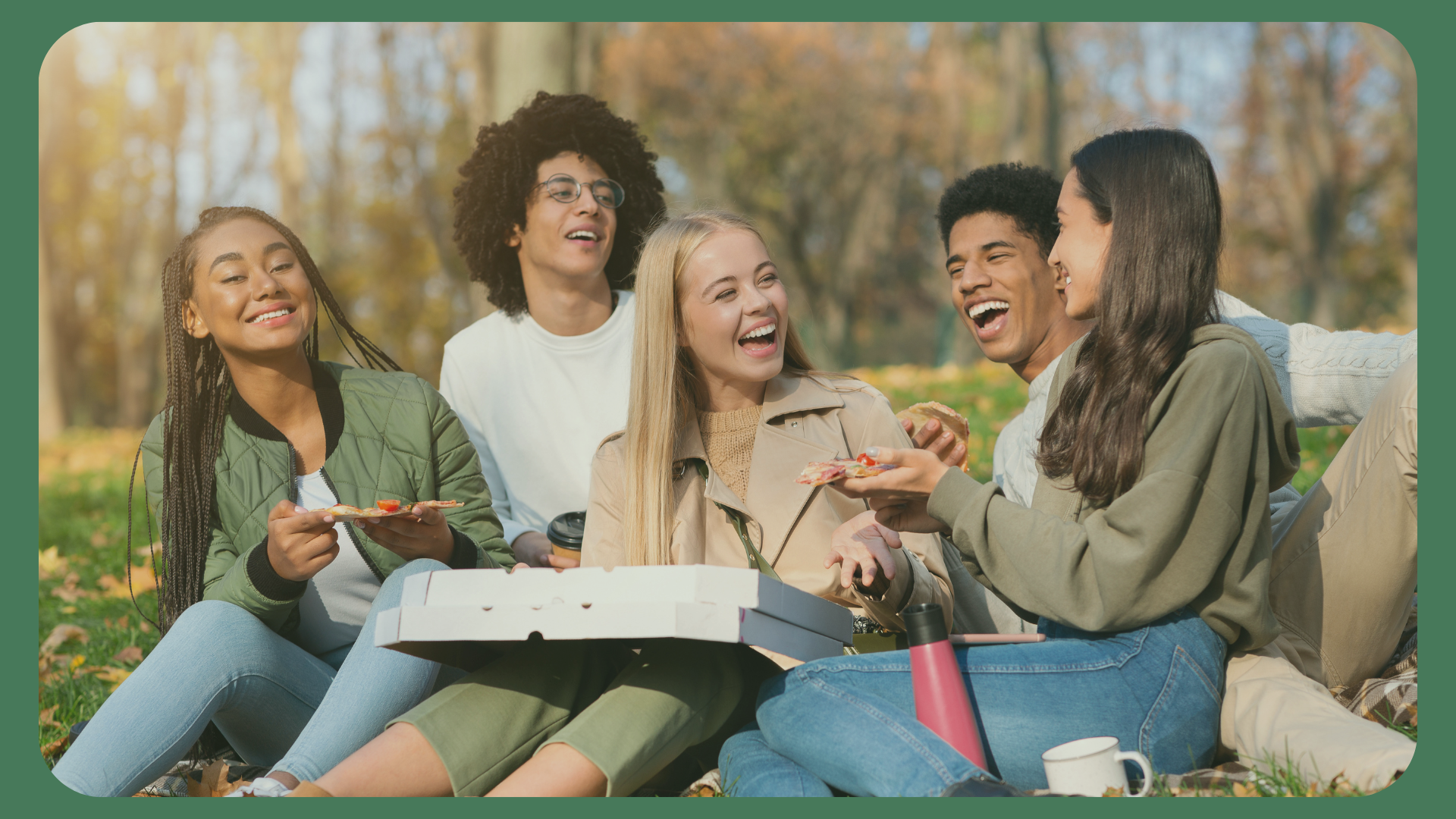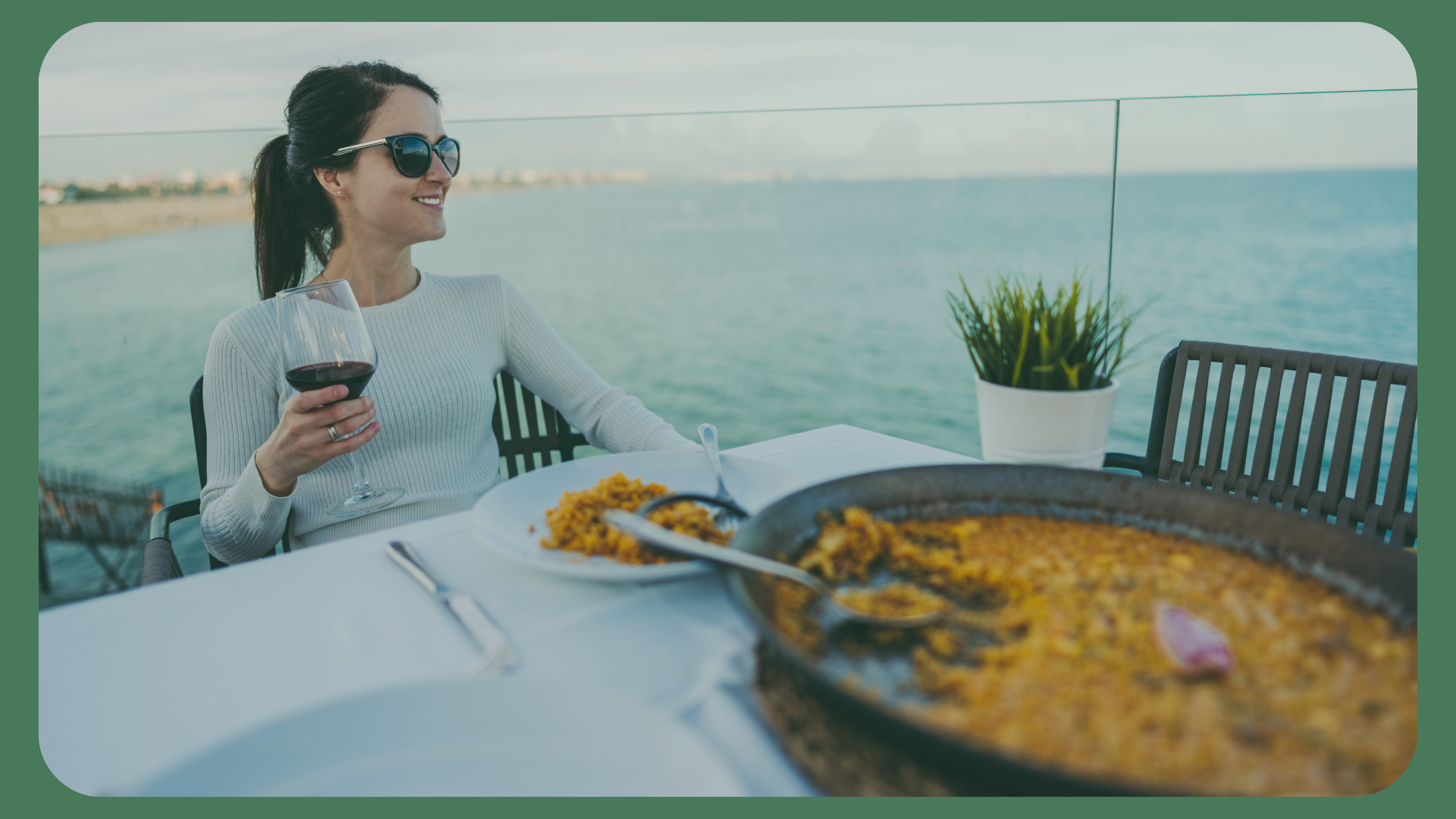Mindful Travel Eating: How To Not OVEREAT On Vacation
Sep 06, 2023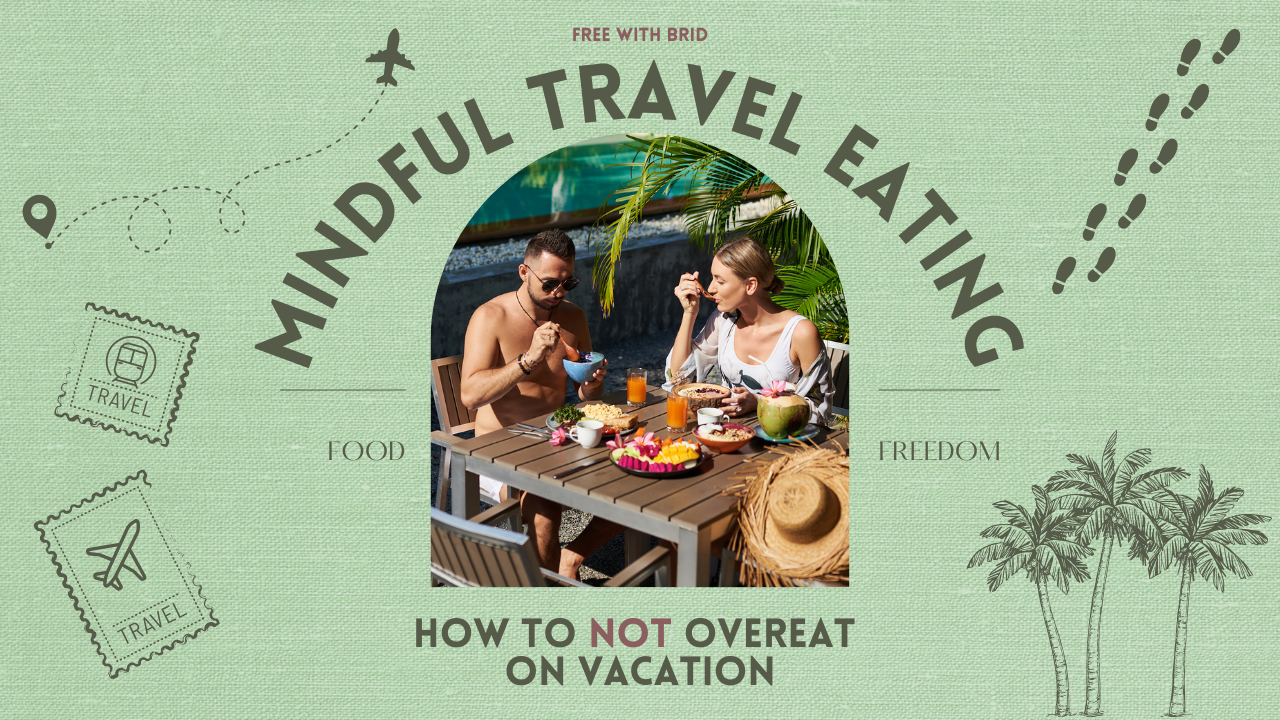
How to Not Overeat on Vacation: Mastering the Art of Balanced Indulgence on Vacation
Discover effective tips and tricks to avoid overeating during your vacation. Maintain a healthy balance while enjoying your time away. Bon voyage to better eating habits!
Vacations are a time to unwind, explore, and yes, relish in delicious food. But how can you enjoy your culinary adventures without derailing your fitness goals?
Ah, the thrill of vacation! Exploring new places, indulging in exotic cuisines – it's a time to let loose and savour every moment. But beware, as the allure of new flavours and relaxed routines can sometimes lead to the trap of overeating. Let's dive into the telltale signs of overindulgence during your getaway:
- Feast Mode Activated: Abundant buffets and exotic cuisines often trigger the desire to taste everything.
One of the primary factors that contribute to overeating while on vacation is the mindset of wanting to make the most out of the experience. Travellers often feel a sense of urgency to savour every delicacy, fearing the missed opportunity of not trying the local specialties. This mindset can create a self-imposed pressure to overindulge and consume more than what the body actually needs.
Moreover, the availability and accessibility of buffets further intensify the urge to go into "feast mode." These all-you-can-eat spreads offer an overwhelming selection of dishes, enticing diners with their variety and the promise of unlimited servings.
The sheer abundance and the "eat to your heart's content" atmosphere can easily throw individuals off balance, leading to excessive food consumption.
- Mindless Munching: Casual snacking throughout the day, even when not hungry.
The act of mindless munching itself is a result of several factors, including boredom, stress, social cues, or even simply the availability of food. Snacks are readily available in hotels, airports, and tourist destinations, making it easy for individuals to constantly reach for them, even when not truly hungry.
This type of behaviour can result in a surplus of unnecessary calories, leading to weight gain and a sense of dissatisfaction during the vacation experience.
Furthermore, socialising plays a significant role in mindless munching while on vacation. Vacations often involve gathering with friends or family, attending social events, or even exploring new culinary experiences.
During these social interactions, food is often at the centre of attention, and the abundance of tasty treats can easily tempt individuals to indulge without being mindful of their hunger cues. This social pressure to partake in food-related activities can make it challenging to resist mindless munching, as the focus shifts from nourishment to pleasure and enjoyment.
- Portion Distortion: Oversized servings, because "it's a special occasion."
In today's fast-paced society, vacations have become a cherished escape from our daily routines. They provide an opportunity to unwind, indulge in new experiences, and, often, enjoy some delicious cuisine.
However, the desire to fully immerse ourselves in the local culture and savour every culinary delight can sometimes lead to an unintended consequence—overeating.
Over the years, portion sizes have significantly increased, both in restaurants and in our homes. What was once a standard serving has morphed into a gargantuan feast that our bodies are ill-equipped to handle.
The perception that vacations are special occasions further exacerbates this issue. We find ourselves adopting the mindset that, since we are away from our daily routines and immersed in a new environment, it is only appropriate to indulge in oversized portions.
After all, it is a special occasion, right?
But if you want to be able to enjoy your vacation and your food but one of your goal is to maintain your current weight or lose weight, here's a podcast that might help you!
- Vacation Excuse: Justifying overeating with the idea that "I'm on vacation, so calories don't count."
When the long-awaited vacation finally arrives, it's not uncommon for people to adopt the mindset that "I'm on vacation, so calories don't count." This belief often leads to overeating, as individuals use the excuse of being on vacation to indulge in excessive amounts of food and abandon their usual other unhealthy food restrictions.
While it might seem like a harmless justification, the consequences of overeating while on vacation can be detrimental to one's health and overall well-being.
The psychology behind the vacation excuse is rooted in the desire to escape the constraints and routines of everyday life. Vacations are seen as a much-needed break from the responsibilities and restrictions that accompany a regular routine, and, as a result, people often feel inclined to liberate themselves from any food limitations they usually adhere to.
This mindset perpetuates the concept that vacation time is a licence to abandon self-control and indulge without repercussions.
If you often find yourself overeating whenever you're on a work trip, here's a Youtube video that is all about How to Avoid Overeating on the Road for Business Travel and Vacation Tips!
- Food FOMO: Fear of missing out on local delicacies leads to excessive eating.
The fear of missing out on local delicacies stems from the desire to fully experience a destination, not only through sightseeing but also through the unique flavours it has to offer.
In an era where food has become an integral part of travel memories, individuals feel pressured to document their culinary adventures on social media, wanting to share their gastronomic discoveries with friends and followers.
Unfortunately, this fear of missing out often leads to overeating. Travellers find themselves constantly seeking out new dishes, even when their stomachs are already full. The fear of regretting not trying a particular local specialty becomes a driving force that overrides their body's natural cues of satiety.
- Social Indulgence: Peer pressure or group dining encourages consuming more than usual.
The atmosphere of group dining can create a sense of excitement and celebration, where individuals may feel inclined to indulge more than they typically would. The sheer abundance and variety of food can be overwhelming, making it difficult to resist trying everything.
This is further compounded by the contagious enthusiasm of friends or companions, who may encourage others to join in the feasting and disregard their usual food limitations or balance.
Additionally, the desire to bond and strengthen social connections while on vacation can also play a significant role in overeating. Dining together is often seen as a way to enhance relationships and create lasting memories. As a result, individuals may feel compelled to participate in communal meals, regardless of their own personal hunger levels or food balance goals.
- Decadent Desserts: Tempting treats become a daily ritual rather than an occasional delight.
The constant availability of decadent desserts during a vacation can make it challenging to maintain a healthy eating routine. It is easy to fall into the temptation of having multiple desserts in a single day, convincing oneself that it is only for a limited time and that it won't have a lasting impact.
However, the truth is that these indulgences can have long-term consequences on our health and well-being.
Overindulging in rich, sugary desserts can lead to weight gain, increased risk of developing chronic conditions such as diabetes and heart disease, and a general feeling of sluggishness and fatigue. These consequences can significantly impact the overall enjoyment of a vacation, as one may feel bloated, lethargic, and uncomfortable while engaging in other activities.
No one said that you should completely ditch eating desserts at all and close your eyes as you walk past the spots where they sell these sweet pleasures! All you need is BALANCE. Here's a podcast about "Smarter Eating While on Vacation!", check it out!
- Alcohol Amplification: Increased alcohol consumption can lead to uninhibited eating.
Alcohol, as we know, has the ability to lower inhibitions and impair judgement. This can lead to a loosening of self-control, making us more susceptible to overeating.
It is not uncommon for individuals on vacation to fall into the trap of mindless eating while under the influence of alcohol, often resulting in consuming more food than necessary.
One way in which alcohol influences our eating patterns is by affecting the brain's reward system. The consumption of alcohol leads to the release of dopamine, a neurotransmitter associated with pleasure and reward. This surge of dopamine can create a heightened sense of pleasure, making food more enticing and triggering a desire to consume even more.
Moreover, alcohol has the potential to disrupt the body's satiety signals, making it more challenging to recognize when we are full. This can make it easier to continue eating past the point of satisfaction, leading to overeating.
Furthermore, alcohol can impact our decision-making abilities, prompting us to choose unhealthy, calorie-dense foods over more nutritious options.
- Snack Souvenirs: Stocking up on local snacks to take home, adding extra calories.
When presented with unfamiliar foods, it is natural for individuals to feel an irresistible urge to try everything. The allure of regional flavours and unique textures can be a temptation difficult to resist. As a result, travellers tend to accumulate an array of snacks that they might not typically consume in their day-to-day lives.
This accumulation of snacks can lead to excessive intake during and even after the vacation. The simple act of bringing home a few bags of chips, chocolates, or other tempting treats can contribute to overeating.
These snack souvenirs become a constant reminder of the enjoyable moments they had during the trip, and it is all too easy to reach for them when seeking comfort or a taste of nostalgia.
- Emotional Eating: Using food to cope with travel stress or to enhance positive emotions.
Travelling, although often exciting and enriching, can also be accompanied by its fair share of stressors. From the anticipation of packed schedules and tight itineraries to the challenges of navigating unfamiliar territory, travellers may find themselves feeling overwhelmed and seeking solace in food.
The act of emotional eating serves as a coping mechanism for these individuals, offering temporary relief from the emotional strain associated with travel stress.
Moreover, it is not uncommon for individuals to indulge in excessive eating while on vacation, particularly when experiencing positive emotions. The allure of new culinary experiences and the desire to fully immerse oneself in the culture of a destination can lead to overeating.
Vacations often create an atmosphere filled with celebration and indulgence, prompting individuals to prioritise enjoyment over moderation. As a result, emotional eating can manifest as a way to enhance positive emotions, further contributing to overeating during travel.
In conclusion, mindful travel eating is not about deprivation but about savouring every moment and every bite of your vacation. By remembering or looking out for these possible roots of vacation binge eating and being conscious of your choices, you can truly indulge in the flavours of your destination without overindulging.
If you want to know more about vacation travel eating but you know that you'll probably just restrict yourself all through out the trip, this podcast about is for you!
Remember, the goal is not only to explore new places but also to nurture your well-being along the way. So, whether you're enjoying exotic street food in Bangkok, indulging a creamy ice cream in Italy, sipping wine in the heart of Tuscany, or simply trying local delicacies wherever your adventures take you, practise mindful travel eating to savour the essence of your journey...
Both on your plate and in your heart!
Embarking on a journey to prevent overeating while embracing full food freedom is an empowering and liberating choice. It's about savouring the delights of delicious food without the constraints of portion sizes or restrictive diets.
By exploring a range of mindful strategies, you can cultivate a harmonious relationship with eating, listening to your body's cues, and nourishing your well-being while still relishing the diverse culinary experiences life has to offer.
Here's a collection of tips that will guide you towards this fulfilling path, allowing you to indulge in your favourite flavours without the fear of overindulgence.
- Savour Every Bite: When indulging in delicious food, take the time to savour each bite. This not only enhances your enjoyment but also helps you recognize when you're satisfied, making it easier to avoid overeating.
- Stay Hydrated: Drinking water throughout the day can help you distinguish between thirst and true hunger. Staying hydrated also keeps you feeling great, helping you make healthier choices.
- Mindful Choices: Instead of focusing on losing weight or calorie counting, make mindful choices about what you plan to eat. Opt for foods you genuinely enjoy and look forward to trying, without worrying about gaining weight.
- Embrace Variety: Enjoy a variety of foods during your vacation. Trying local specialties can be a delightful part of the experience, and this variety can reduce the temptation to overindulge in a single type of food.
- Eat Regular Meals: Aim to have regular meals a day rather than following an intermittent fasting approach. Consistent eating can help you manage your appetite and make more balanced choices throughout the day.
- Listen to Your Body: Pay attention to your body's hunger and fullness signals. Stop eating when you're comfortably satisfied, and trust your body to guide your food choices day to day.
- Stay Active: Engage in activities you enjoy during your vacation. Whether it's walking on the beach, hiking, or exploring the area, staying active can help you feel great and offset extra calories.
- Mindful Indulgences: If you're in the mood for ice cream or other treats, go for it! Enjoy your treats mindfully, and remember that occasional indulgences are part of food freedom.
- Plan Your Meals: Consider planning where you'd like to eat in advance. This can help you make intentional choices about when and where to enjoy delicious food while avoiding impulsive, emotional eating.
- Pause for 20 Minutes: If you're tempted to eat more, pause for 20 minutes before deciding. This gives your body time to register fullness, reducing the likelihood of overeating.
- Prioritise Feeling Great: Focus on feeling great during your vacation, both physically and emotionally. Food should enhance your experience, not detract from it.
- Balanced Choices: While there's room for indulgences, aim to balance them with healthier food options. This way, you can enjoy delicious food without feeling restricted or making unhealthy choices.
Remember, it's entirely possible to enjoy vacation, savour delicious food, and stay in tune with your body's cues without binge eating and overeating or fixating on portion sizes or dieting.
Food freedom is about finding a balance that allows you to relish your vacation experience while maintaining your fitness goals and feeling great overall.
Your vacation should be a time of joy, relaxation, and, of course, indulging in delicious foods without the guilt or worry of overeating. By embracing mindful eating, staying active, and savouring every bite, you can truly savour your vacation experience.
However, if you find yourself struggling with overeating out of habit or simply want to take charge of your relationship with food, we invite you to join our FREE MASTERCLASS, "How to Stop OVEREATING Out of Habit." This class is designed to help you regain control and enjoy food freedom.
And for those seeking a comprehensive transformation, our "30-Day Reboot Course” is your pathway to healthier choices and long-term wellness.
Don't miss out on these incredible opportunities to elevate your journey towards a balanced and enjoyable lifestyle. Enrol today and start making positive changes that will last a lifetime. Your food freedom awaits!
Bon appétit and happy travels!
If you want to connect with me, check out my social media and website:
Instagram - @freewithbrid
Website - www.freewithbrid.com
or WORK WITH ME! 💚
All love from your Binge-Eating Coach, BRID.
Start your food and body healing journey with the FREE masterclass
"Why You're Still Binge-Eating & How To Stop"
